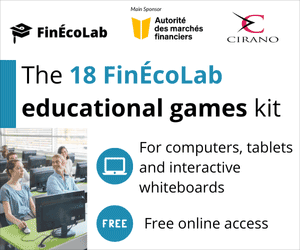Infertility is often painted in shades of grief and loss, yet, for many, it's a far more complex experience; one that can generate unexpected strengths, reshape relationships and ignite advocacy.

Carina Zhu
Researcher Carina Zhu, a PhD candidate in the University of Calgary's Faculty of Nursing, is exploring this complex issue that impacts an estimated one in six Canadian couples.
Despite impacting many people, conversations around infertility are often muted or clinical. Zhu's research aims to amplify these voices that are often silenced.
Zhu's work, which she says has crucial implications for nursing practice and education, looks into moving beyond the dominant narrative of loss to understand the full spectrum of lived experience.
Zhu, BN'06, says a philosophy of science in nursing course taught by Dr. Graham McCaffrey, PhD'12, opened her eyes.
"That was probably the first class where I thought about a topic such as infertility, not in a biomedical way, but to approach it in terms of language, in terms of experience, in terms of history," says Zhu.
Her supervisor, Dr. Nancy Moules, BN'95, MN'97, PhD'00, encouraged her to take up this topic from an interpretive stance, for which she received additional support from UCalgary Nursing and funding from the Social Sciences and Humanities Research Council.
Finding fertile ground for research at UCalgary
Zhu's study engaged a number of participants, including at least two fellow nurses.
For Michaela Palmer, contributing to Alberta-based research felt vital.
"We are the last province in Canada to not commit to supporting fertility care," Palmer says. "To help further push along this entire movement of making infertility something that we talk more about this is part of that."
Palmer, who works in addiction and mental health and knows Zhu professionally, felt an immediate connection to the research goal. "I feel exactly how you feel," she remembers telling the interviewer. "We need to talk about this more."
Participant voices reveal resilience and validation
A key aspect of Zhu's research is understanding how the experience feels generative. For Palmer, this manifested partly through advocacy.
Having carried a stillborn daughter prior to being diagnosed with infertility, Palmer found strength in openness.
"I said, I'm grieving loudly' and now that we're going through infertility, I'm approaching it the same way," she says. "I feel privileged to be able to be a part of shifting that narrative now."
Heather de-Rooy, another participant, found Zhu's compassionate approach allowed her to speak openly about infertility and the late-term loss of her son, experiences often shrouded in silence.
"Being part of this study allowed me to not only share my story, but to speak about our son, to acknowledge his life and our love for him," de-Rooy says. "It feels like a way of staying close to him, and a way of keeping the truth of our journey visible in a world that often looks away."
Both participants highlighted moments where the research process itself felt validating. Palmer says she appreciated that Zhu allowed space to discuss the loss of her daughter alongside infertility. "Those two events didn't happen in silos," says Palmer. "The fact that she let me speak so much about that experience was really, really powerful and meaningful."
For de-Rooy, her interview was "healing in its own quiet way. I felt like my experience wasn't just being listened to, it was being witnessed with care, with curiosity and without judgment.
"It reminded me that being heard truly heard can be such a powerful step toward feeling whole again."
Systemic gaps and calls for compassionate change
Zhu's research illuminates significant gaps in societal understanding and systemic support.
De-Rooy says fertility care is not covered in Alberta. "Access shouldn't be a privilege," she says. Fertility treatments like IVF can cost upwards of $20,000 per cycle, not including medications or supportive therapies, with no guarantee of success. While other provinces offer public funding or tax credits, Alberta currently provides no financial support, leaving many families with the painful reality of choosing between pursuing a family or facing potential financial instability.
Workplace support is another major issue. Palmer experienced challenges with her husband's previous employer, who pushed back when he requested time off to support her. "It's like, it's not your appointment," Palmer says.
In health-care settings, Palmer wishes for greater validation.
"We women have lived in our body since the minute we were born we know when something's off," she says. "Just feeling validated and listened to is important."
These lived experiences underscore the need for change that Zhu hopes her research will inform, particularly within nursing. Standard nursing education often focuses heavily on childbearing, leaving graduates potentially unprepared to support those facing infertility or loss, she says.
Shaping understanding within nursing and beyond
"Nurses' focus on the care of women who are fertile has silenced those who are not," Zhu stated in her research proposal. By interpreting participant stories, she aims to challenge norms and foster more comprehensive, empathetic care.
Infertility reshapes the lives of the women affected.
"It has made me softer in some ways, and tougher in others," says de-Rooy. "I carry an increased awareness that you never really know what someone else is carrying."
Ultimately, Zhu emphasizes the importance of participant voices and nurses' role in understanding them.
"Yes, it's my research but it's their stories that allowed me to do this," she says.
Zhu has completed participant recruitment and is currently analyzing data and writing her dissertation, with plans to defend in April 2026. A registered nurse since 2006, she has worked in sexual and reproductive health and harm reduction, and has been teaching in postsecondary education since 2012. She currently works casually for Recovery Alberta while finishing her PhD.
Canadian Fertility Awareness Week takes place April 20-26. Learn more.











